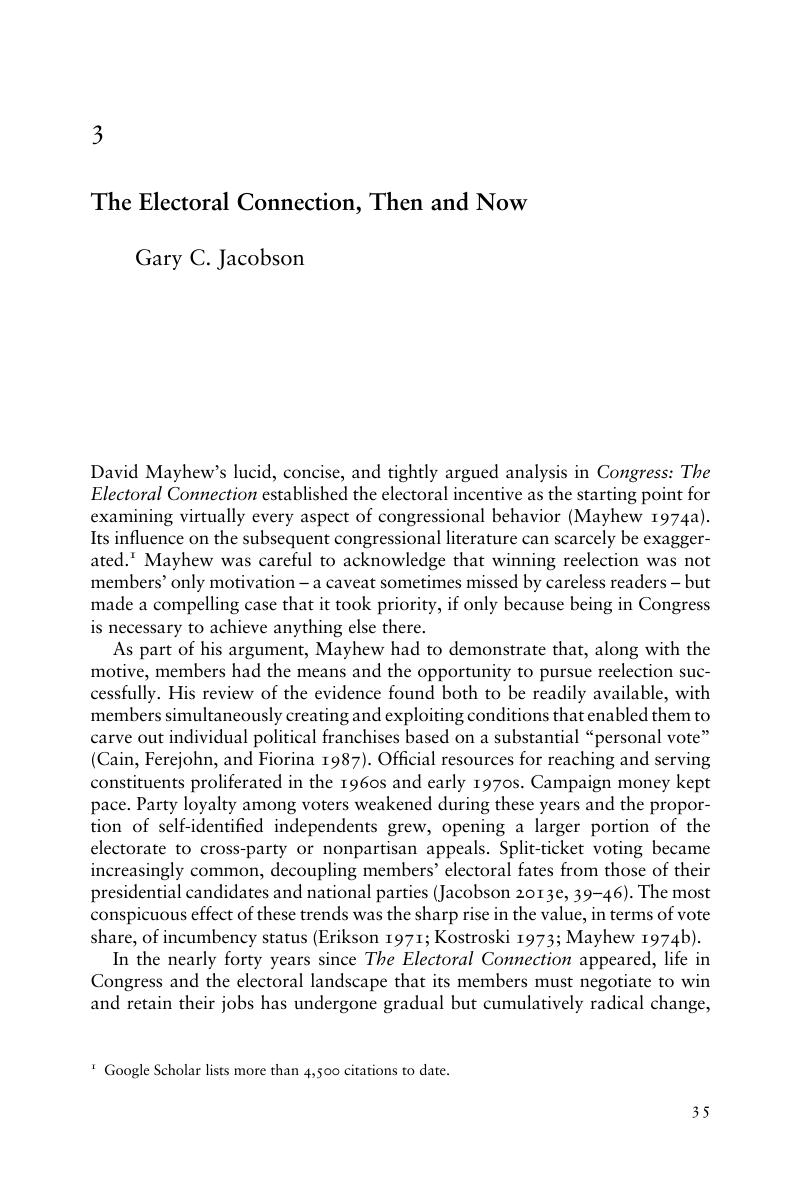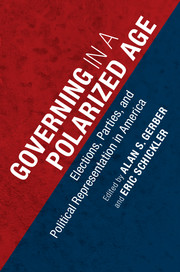Book contents
- Governing in a Polarized Age
- Governing in a Polarized Age
- Copyright page
- Contents
- Contributors
- 1 Introduction
- Part I Political Representation and Democratic Accountability
- 2 The Electoral Connection, Age 40
- 3 The Electoral Connection, Then and Now
- 4 The Congressional Incumbency Advantage over Sixty Years
- 5 A Baseline for Incumbency Effects
- Part II Continuity and Change in Party Organizations
- Part III Partisanship and Governmental Performance
- Part IV Conclusions
- Index
- References
3 - The Electoral Connection, Then and Now
from Part I - Political Representation and Democratic Accountability
Published online by Cambridge University Press: 20 October 2016
- Governing in a Polarized Age
- Governing in a Polarized Age
- Copyright page
- Contents
- Contributors
- 1 Introduction
- Part I Political Representation and Democratic Accountability
- 2 The Electoral Connection, Age 40
- 3 The Electoral Connection, Then and Now
- 4 The Congressional Incumbency Advantage over Sixty Years
- 5 A Baseline for Incumbency Effects
- Part II Continuity and Change in Party Organizations
- Part III Partisanship and Governmental Performance
- Part IV Conclusions
- Index
- References
Summary

- Type
- Chapter
- Information
- Governing in a Polarized AgeElections, Parties, and Political Representation in America, pp. 35 - 64Publisher: Cambridge University PressPrint publication year: 2016
References
- 4
- Cited by



